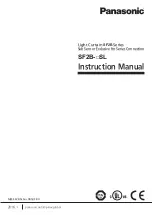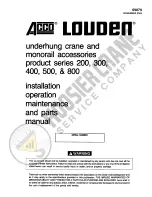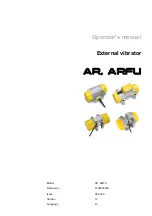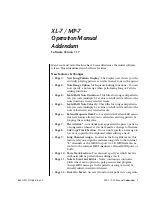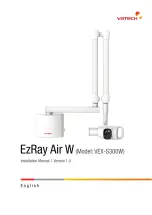
Section 4
Maintenance
Part Number: 9291545 REV00 11/20 17
Interior Cleaning
The interior can be cleaned using soap and warm water. If
this isn’t sufficient, try ammonia and water or a nonabrasive
liquid cleaner.
GASKETS
Gaskets require regular cleaning to prevent mold and mildew
build up and also to retain the elasticity of the gasket. Clean
them with water and mild soap (not citrus based). Avoid full
strength cleaning products on gaskets as this can cause them
to become brittle and crack. Never use sharp tools or knives
to scrape or clean the gasket. Gaskets can be easily replaced
and do not require the use of tools or an authorized service
person. The gaskets are dart style and can be pulled out of
the groove in the door. Place gasket in warm water to make
the material more pliable for installation. Dry and press into
place.
PREVENTING BLOWER COIL CORROSION
To help prevent corrosion of the blower coil, store all acidic
items, such as pickles and tomatoes, in seal-able containers.
Immediately wipe up all spills.
Exterior Cleaning
Notice
Never use an acid based cleaning solution on exterior
panels! Many food products have an acidic content,
which can deteriorate the finish. Be sure to clean the
stainless steel surfaces of ALL food products.
Clean the area around the unit as often as necessary to
maintain cleanliness and efficient operation.
Wipe surfaces with a damp cloth rinsed in water to remove
dust and dirt from the outside of the unit. Always rub with
the “grain” of the stainless steel to avoid marring the finish.
If a greasy residue persists, use a damp cloth rinsed in a mild
dish soap and water solution. Wipe dry with a clean, soft
cloth.
Never use steel wool or abrasive pads for cleaning. Never use
chlorinated, citrus based or abrasive cleaners.
Stainless steel exterior panels have a clear coating that
is stain resistant and easy to clean. Products containing
abrasives will damage the coating and scratch the panels.
Daily cleaning may be followed by an application of stainless
steel cleaner which will eliminate water spotting and
fingerprints. Early signs of stainless steel breakdown are
small pits and cracks. If this has begun, clean thoroughly and
start to apply stainless steel cleaners in attempt to restore
the steel.
Wipe casters with a damp cloth to prevent corrosion.
DRAIN
Drains can become loose or disconnected during normal use.
Be sure all drain lines are free of obstructions.
Doors
Over time and with heavy-use doors, the hinges may become
loose. If this happens, tighten the screws that mount the
hinge brackets to the frame of the unit. Loose or sagging
doors can cause the hinges to pull out of the frame, which
may damage both the doors and the hinges. In some cases
this may require qualified service agents or maintenance
personnel to perform repairs.
Cleaning The Condenser Coil
In order to maintain proper refrigeration performance, the
condenser fins must be cleaned of dust, dirt and grease
regularly. It is recommended that this be done monthly. If
conditions are such that the condenser is totally blocked
in a month, the frequency of cleaning should be increased.
Clean the condenser with a vacuum cleaner or stiff brush. If
extremely dirty, a commercially available condenser cleaner
may be required.
Failure to maintain a clean condenser coil can initially cause
high temperatures and excessive run times. Continuous
operation with a dirty or clogged condenser coil can result in
compressor failure. Neglecting the condenser coil cleaning
procedures will void any warranties associated with the
compressor and cost to replace the compressor.

























